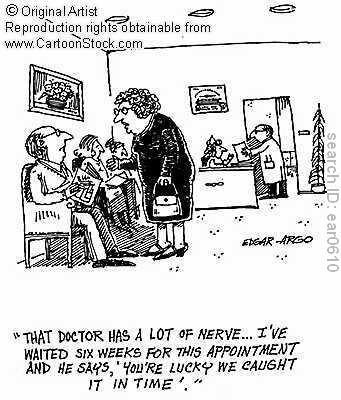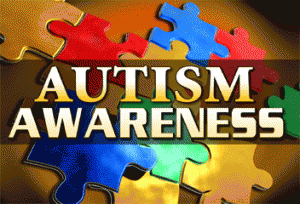I recently asked the hospital here in my city how long the wait list is to get an assessment for Autism. Here’s what I discovered:
First, you have to wait until your child is two years of age… this is so that there is adequate development to demonstrate the repetitive obsessions, lack of eye contact, milestones missed and so forth to base an accurate diagnosis on.
Then you ask your doctor for a referral to the doctor/place that will make the assessment… this takes time. In our case, it was a couple of months before we received the phone call.
Finally, that doctor/place will give you a date to bring in your child… where we were when we had Cameron, it was 6 months. Here, in the city in which I live now, it’s 1 full year.
The first wait list is the worst
 This is simply unacceptable for multiple reasons.
This is simply unacceptable for multiple reasons.
- Early intervention is paramount. You ask for a referral at 2 yrs old, you wait 1 year.. child is 3 before you even start. For the best results, it’s proven that children learn what will dictate the course of their life before the age of 5. That means that 3 out of 5 years are lost. You have just 2 years now to cram in as much therapy and treatments as possible before they’re out of that stage and worse.. off to school.
- The end of a long assessment wait list is only the beginning of more long wait lists for treatments and therapies. If you think 3 out of 5 years is all that you lose, you’d be wrong. When we had Cameron diagnosed, we were told that it was a 3 year wait list for ABA/IBI. That would have made him 5.5 years old before he even started therapy. Far too late!
- A long wait list means that there are that many children ahead of you and so few doctors to see them. We have all heard the numbers, 1 in 110… 1 in 70 for boys… the numbers out of the Korea study are much higher. The problem is that we don’t have the same ratios for doctors. So few doctors are capable of making a proper diagnosis, they’re in high demand. There’s one in the city in which we live. Obviously, he’s out numbered and having to fill his calendar over a year in advance.
- A long wait list makes it impossible for a second opinion. Some children are misdiagnosed. Many disorders/ailments are similar. With so many children being diagnosed with ADHD, Autism, PDD-NOS, Aspergers, Sensory Processing Disorder…. well, let’s just say, the list could go on and on and on… even doctors can get the signals mixed up. Some children may exhibit several symptoms of one disorder while sitting in front of the doctor and not other symptoms… prompting the doctor to make a diagnosis… a wrong diagnosis.
Even doctors suggest getting a second or third opinion if possible, to avoid mistakes. But you know what? That’s just not possible most of the time and it’s certainly not possible when you miss out on most of your child’s childhood just waiting.
More wait lists?
They don’t end there… you keep going from wait list to wait list. You wait for the school board to tell you if you’ll get into a special class, special school, get an aide, hear about your IEP meetings… you get onto wait lists for the bus system to get to that school. You get onto the wait list for camps, swimming lessons… the list goes on and on and you’ll be waiting on most of them.
It’s maddening and in reality, most of the time, it’s quite unacceptable.
A child’s future should not lie on a foundation of waiting around.
Waiting for the future?
Don’t wait, take action. In the day and age of social media, find politicians on Twitter and ask them for help. Find medical professionals and ask them for help. Donate to local charities and ask them for help.
Don’t like your doctors in your town? Find other ones. Research online, make phone calls. There are other places that will get the job done more quickly but it may mean some road trips.
You might not make any changes for yourself, you may be stuck. But don’t just wait. Fight. The next parent behind you will need you to fight.
Fighting for it now might not help me right now, but it might help some parent in the future who has yet to encounter their first wait list. And if I’ve stood up high enough, spoke out loud enough, maybe their wait list will be a little bit shorter than mine.
And maybe, if that person fights too… maybe one day our children won’t have to wait until they’re 5 to get what they need at 2.
How long did you have to wait? What wait lists have you found yourself on?










